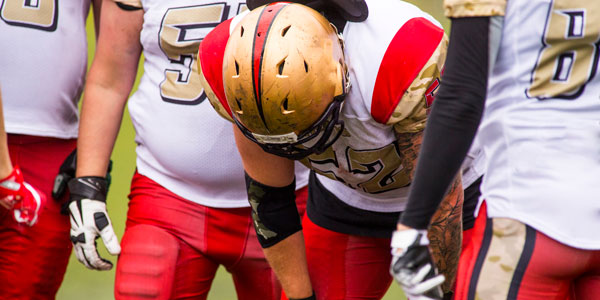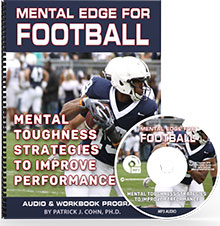
Focus your Mind on What is Next
How long does a tough loss affect you? Some athletes can get over a loss quickly and shift their focus to the next competition.
Other athletes dwell on bad games or performances; “I can’t believe I choked,” “I let my team down again,” or “We should have easily won that game.” Dwelling on a bad game will hurt your confidence and affect how you practice, train, and play in the near future.
Even worse, for some athletes, a tough loss or bad performance can cause them to lose sight of their goals.
For example, you and your coach set some challenging yet realistic seasonal goals in the preseason. You worked your butt off in practice, harder than you ever have in the past.
You saw some positive results early in the season and felt you were on the right path. You were focused and confident about achieving your goal. The season seemed to be unfolding as planned.
Unfortunately, at your mid-season competition, you bombed. You started to question your talent, potential, and ability to achieve your goal. All the time and effort you put in seemed like a waste.
You thought, “I won’t be able to accomplish my goal now. Why even try?” You allowed one performance to shake your confidence and hurt future performances
The Michigan State University football team found themselves in a similar situation. Michigan State was ranked No. 3 in the nation with an 8-0 record. In the ninth game of the 2021 season, Michigan was upset by Purdue, 40-29, potentially disrupting their hopes of making the College Playoffs.
After the game, Michigan State head coach Mel Tucker reminded his players that this was just one loss and they needed to shift their focus on the next game.
Tucker has a 24-hour rule that he invokes. After 24 hours, Tucker doesn’t let his team dwell on a past game.
TUCKER: “We didn’t play well enough to win the game, but we have a lot of football ahead of us, and all our goals are still ahead of us, and so what needs to be done? What’s next? That’s what’s most important. What’s next? We have to get on the film, get the courage to understand why. We need to get those things fixed, and then we need to get ready for Maryland. And that’s the only thing there is to do.”
Stay focused on your goal. Move on after a loss. You may have to tweak your plan, but you should always focus forward and prepare for the next competition.
Overcoming a Tough Loss
Apply the 24-hour rule. After competition, give yourself 24 hours to assess what happened. When that period of time expires, focus forward. What can you learn from the loss to help you improve next week?
Is there something you can change or adapt mentally or physically to grow or move your game forward? After you answer that question, ask yourself what you can do to prepare for the next competition?
Always keep your focus on what is next instead of dwell on or feel sorry for yourself about what happened.
Related Sports Psychology Articles
- How to Focus for Football Players
- Coping With Adversity in Football
- The Mindset for Readiness in Sports
*Subscribe to The Sports Psychology Podcast on iTunes
*Subscribe to The Sports Psychology Podcast on Spotify
Download a free sports psychology report to improve your mental game!
Learn more about our one-on-one mental game coaching.
The Mental Edge for Football

Are you (or your athletes) performing inconsistently in games with less confidence in games than in practice? Do you lose confidence easily after a couple of blown plays? Do you become so frustrated with your game that you can’t focus on the next play? If you answered yes to these questions, it’s a good bet that your mental game might prevent you from consistent performance in games.
“The Mental Edge For Football” is a complete brain dump of the TOP eight mental training sessions we teach our football players to help them boost their mental game and improve consistency – from how to mentally prepare for games to performing under pressure to building unstoppable confidence.